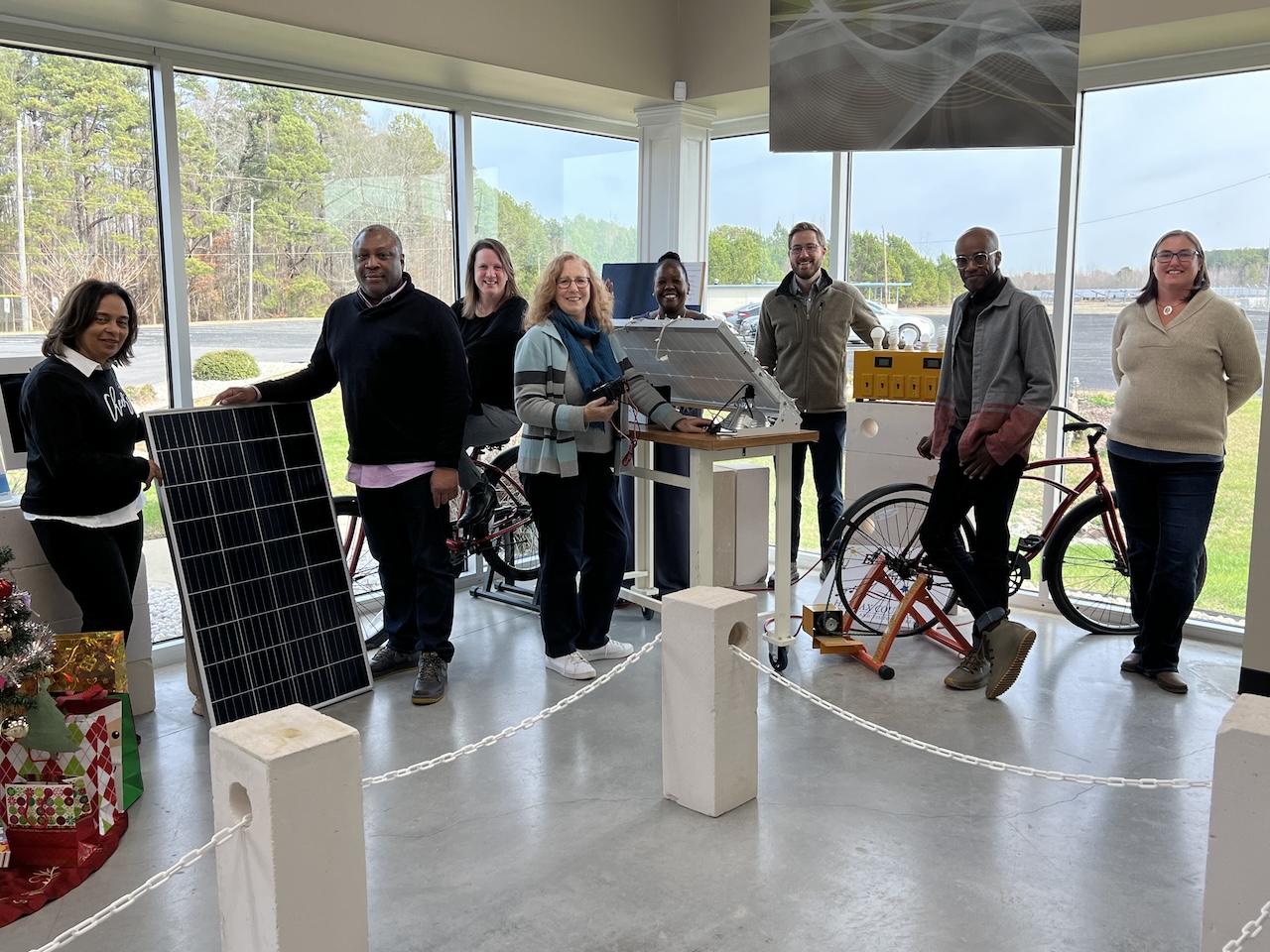The Center for Energy Education hosted a partner organization to strategize clean energy awareness and outreach opportunities related to upcoming Inflation Reduction Act funds to maximize participation among communities and individuals across North Carolina.
C4EE Executive Director Mozine Lowe hosted the NC Clean Energy Fund board of directors, of which she’s a member, last Thursday, to collaborate on effective contributions toward climate change solutions and benefits for the state’s clean energy economy, especially IRA opportunities and improvements.
NC Clean Energy Fund Co-Directors Melissa Malkin-Weber and Jennifer Weiss noted they chose Roanoke Rapids to get a better understanding of northeastern North Carolina’s energy needs and see how the center’s programs fit into the clean energy mix.
“We found it very motivating to see how C4EE provides hands-on connections,” said Malkin-Weber. “The location of C4EE bringing new life to the airport site with solar energy tangibly demonstrates how solar can drive economic growth and improve people’s lives.”
Malkin-Weber said that she expects that by late 2025, two IRA programs — Solar for All and efficiency rebates — will be making rooftop solar and other solar investments more affordable for low-income households across the state.
She added that the state energy office and its collaborators, including the NC Clean Energy Fund, will be working to make sure workforce and entrepreneurship opportunities flow together with household funding.
In the meantime, she said federal tax credits are already available for households to replace inefficient equipment.
To start, C4EE will underscore the economic impacts of renewables as a rural industry and address energy equity and access as it relates to environmental justice.
In time, the center will work to encourage entrepreneurship options within its community to accelerate the clean energy transition.
“The center already facilitates and informs solar-based economic and workforce development opportunities for area’s rural, underserved communities of color,” said Lowe. “The IRA funds will provide additional capital to expand skilled labor offerings related to roofing and HVAC installers, for example, and with the help of neighboring academic and industry partners, promote classes to handle financial tasks such as tax credit management.”








